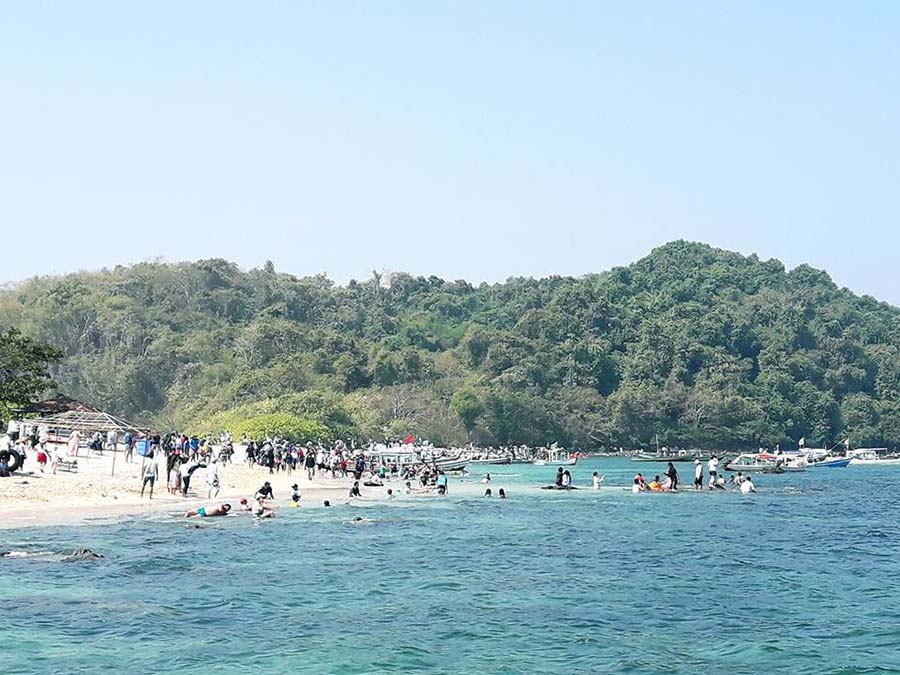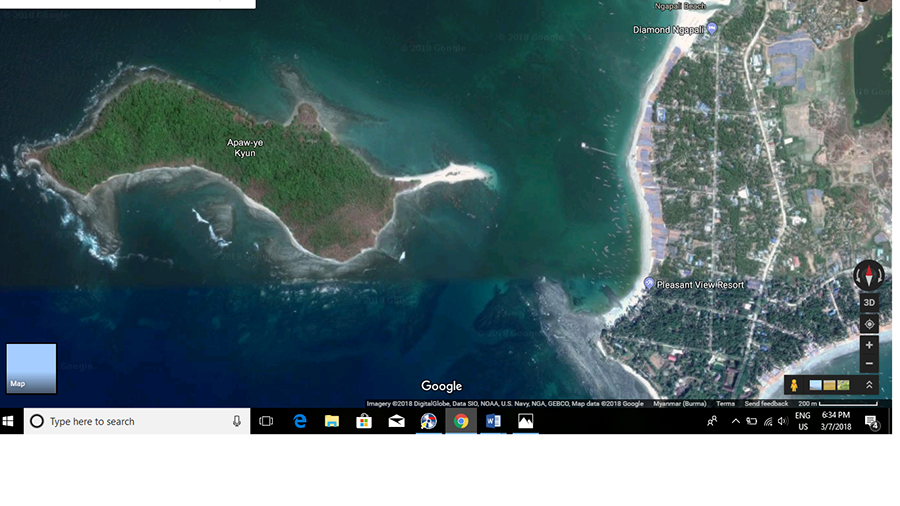YANGON — The Rakhine State government is building a ring road on a popular island off its southern coast in hopes of drawing more tourists to Ngapali beach, though some fear the environmental fallout.
During Tuesday’s session of the state Parliament, Hotels and Tourism Minister U Kyaw Aye Thein, who also serves as Rakhine’s minister of finance, planning and economy, said construction had started recently, according to lawmaker U Naing Kywe Aye, Thandwe (2).
U Naing Kywe Aye said he had asked whether the local government was developing Pearl Island, also known as Apaw-Ye Kyun, with minimal impact on its biodiversity, which could attract international holidaymakers.
Lured by its deep blue waters and white sand beach, many visitors to Ngapali take the 10-minute boat ride to the island. This summer, nearly 100 foreigners and a thousand locals have made the trip daily.

According to U Naing Kywe Aye, the tourism minister said the ring road would be mainly for walking and cycling and that the government would invite interested investors to further develop the island under the state’s supervision.
The island already has a helicopter landing pad, a viewing tower, and a few modest restaurants operating without business licenses.
Some locals — recalling the fallout from past development projects — are wary of seeing the island developed further.
Aung Aung, a Ngapali boat operator, told The Irrawaddy that trees were being felled to make way for the new road. He feared yet more damage to the island’s ecosystem if dynamite is used to source local rocks for a retaining wall, a move he said could also drain the beach of its white sand in the rainy season.
“Leaving Pearl Island alone is the best way to preserve its natural beauty”, Aung Aung said.
He said more visitors would also generate more trash, which, if not properly managed, could end up driving tourist numbers to Ngapali down again.
Oliver Esser Soe Thet, who owns a local hotel and consults the government on sustainable development, said Pearl Island’s bats and eagles were also among its main attractions but complained that its unregulated restaurants have turned it into a virtual “garbage dump,” drawing complaints from visitors and boat operators alike, but to little effect.
He urged Rakhine State Chief Minister U Nyi Pu to consult with both local and international experts on how to protect the area’s natural environment, including garbage and waste management systems.
He also suggested learning from eco-tourism ventures elsewhere that operate their own gardens and playing up the local area’s traditions and customs, possibly even reviving its pearl breeding industry. “Make Rakhine history alive,” he said.
The ring road will run about 3.2 km around the island, which covers less than half a square kilometer.

Locals gave the island its name based on the pearl breeding project the government started there in the 1970s. The state-owned enterprise successfully produced natural pearls, including the prized Tahitian black pearl variety. But it came to an abrupt end in 1990 when nearly 100 pearls were stolen, including about 10 black pearls.
U Kyaw Aye Thein, the tourism and finance minister, could not be reached for comment.

















